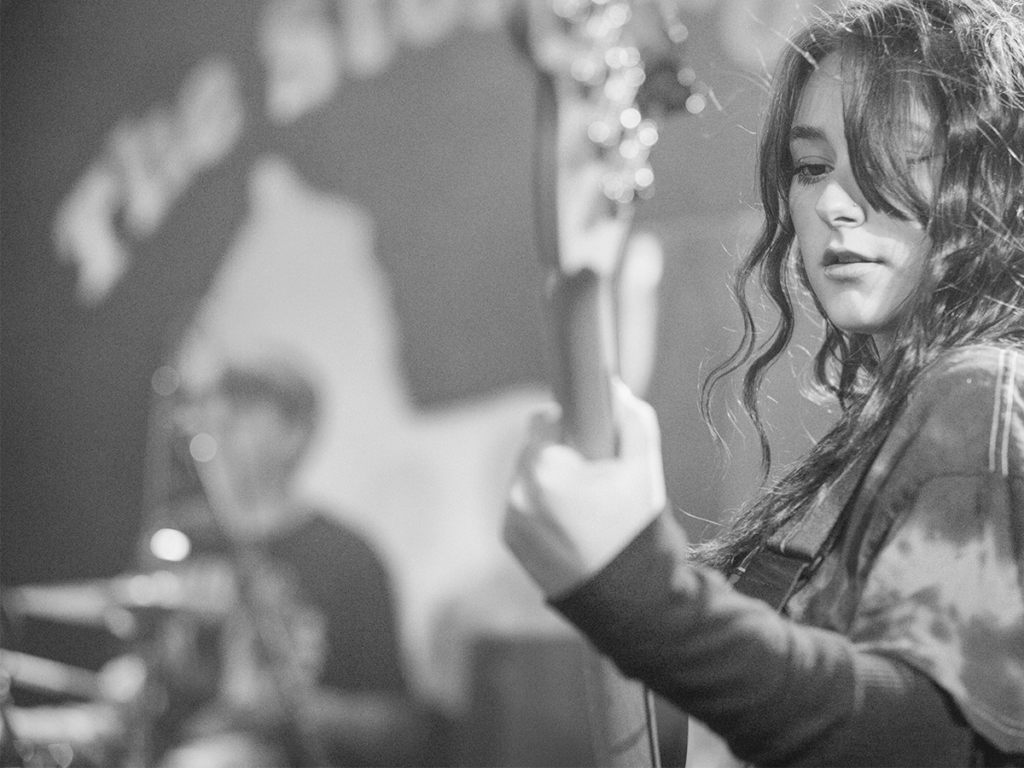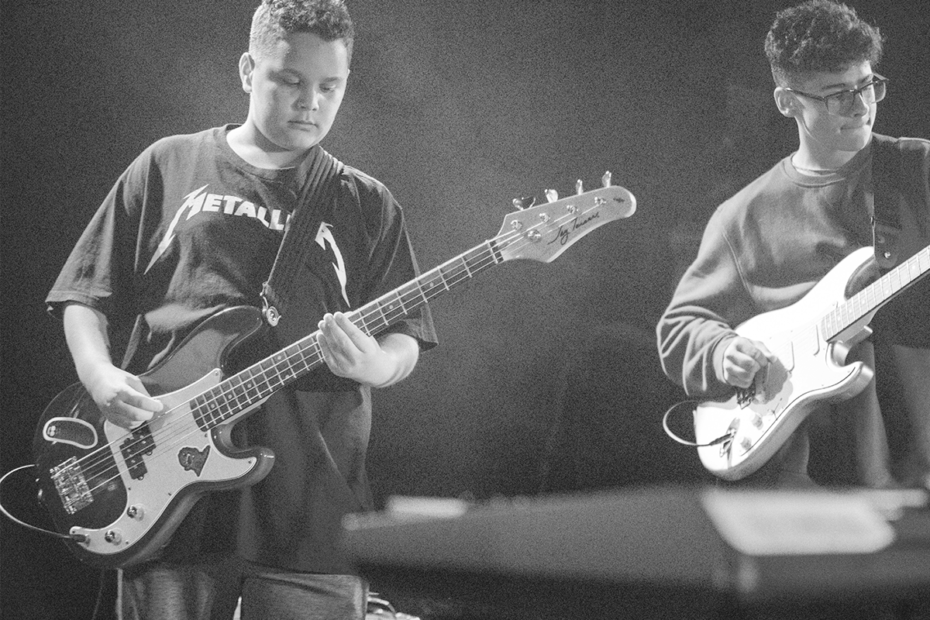Recording a song is an exquisitely thrilling experience. Whether it be a cover or an authored original, words are small to describe the accomplishment of putting new music out there. As beautiful as it is, the process of recording any instrument can be pretty challenging, even for seasoned experts.
We’re The Music Box, Tampa’s premier bass music school, and we’re here to help new generations learn everything there is to know about playing and recording the bass guitar in the studio. If you’ve always wanted to share your (or your band’s) music with the rest of the world, you’ve definitely come to the right place.
Today, we’ll give you a quick rundown of what you can learn at The Music Box when recording your bass, so let’s start from the top.
Isn’t Playing and Recording Music the Same? Why Do I Need Music Lessons?
There are worlds of differences between playing bass in your bedroom, performing at a live venue, and recording your music. Each situation requires a different approach, but many pros will agree that preparing for a recording studio takes more time, patience, and practice.
Let’s assume you’re the head songwriter in your band; you’ve composed all the songs, prepared all the arrangements, and played the song you wish to record a hundred times in your local pub.
As soon as you enter the recording studio, you’ll have to make pilot tracks, find the pitch-perfect tone for each tune, play the best takes you’ve ever played, and sync with every other instrument.
Saying that there’s an element of pressure in the recording studio would be an understatement, but that’s where we come in. The Music Box bass coaches are experts in helping their students prepare for upcoming recording sessions and enter the room stress-free; after years of coaching, we’ve discovered that this is the perfect combination that yields the best results.
Recording Bass The Music Box Way – How We Help
At The Music Box, we help beginner musicians become proficient in their chosen instruments. After grasping the basics, many of our students wish to move to greater challenges like performing live and recording their music.
If you’re here for the latter, our music coaches will explain to you how recording studio gear works, how to polish your tone, interact with other musicians, and show you everything you need to know to record a song that you’ll be proud of even ten years from now. Let’s dive into a bit deeper details.
Consistent Practice is the Key
Most bands and musicians record songs before entering the studio; many come up with new material on the fly, but that’s usually the more expensive route, not to mention that your band has to be quite experienced for this method to work.
Regardless of which approach you’ve taken, practicing is one of the most important things to consider before entering the studio. You’ll have enough time to warm up your fingers and toy around with your amp’s EQ or pedal effects, but if you don’t know what you’re supposed to play or if your playing is sloppy, you may want to take a bit of extra time to prepare before recording anything.
At The Music Box, you’ll have ample opportunities to practice your bass skills in techniques both individually and with other students. Come to our TikTok page if you want a close-up look at what our practice sessions look like. For the best results, it’s highly recommended that you also practice at home whenever you can.

Understanding Studio Equipment
Recording microphones, mixing boards, a barrage of jacks, speakers, soundproof panels, and studio headphones – these are just some of the many things you’ll encounter in a recording studio.
It’s important to understand that each of these gear pieces is different from their “every day” counterparts. For example, most people won’t use headphones with a flat sound signature for casual listening, and you’ll probably be surprised how apparent any mistake you make while playing will be while such headphones are on your ears.
If you come to The Music Box for bass lessons, your coach will explain in great detail how all of this equipment works. After all, we use a variety of audio recording gear when filming clips and capturing the progress of our students on tape, as you can see on our Instagram page.
Dialing in the Perfect Tone
Once you release your freshly-recorded song, it will be there for everyone to hear. That’s why it’s important to find the best tone possible – a tone that you can stand behind even years from now.
Our bass coaches are here to help you understand the nuances and subtle details in your instrument’s tone that you may have missed. Tweaking the control knobs on the amp, using your bass’s pots, and choosing the right pedals are just some of the many things you’ll learn at The Music Box. Swing by our Facebook page to learn more.
Interacting With Musicians & Other Tracks
You’re not recording your bass guitar solely for the purpose of having a bass track. You’re recording an integral component of a larger piece, and it’s supposed to fit perfectly into the greater picture.
When you begin taking your bass lessons at The Music Box, you’ll acquire two incredibly important skills; you’ll learn how to properly interact with other musicians and how to create bass tracks that gel with all the other tracks in any given mix.
Sometimes, drummers want their drums to be louder; guitarists may want to take the spotlight, and singers are famous for not letting other musicians “overpower” their vocals. It’s important to learn how to communicate what’s on your mind and attain equilibrium, both within the band and in the final mix.
Ready to Begin? Join Us at The Music Box
You can find us at 4321 Gunn Highway, Carrollwood, Florida. Whenever you’re ready, swing by our HQ or send us an email. Whenever you’re ready to start your bass lessons, just follow this link.



